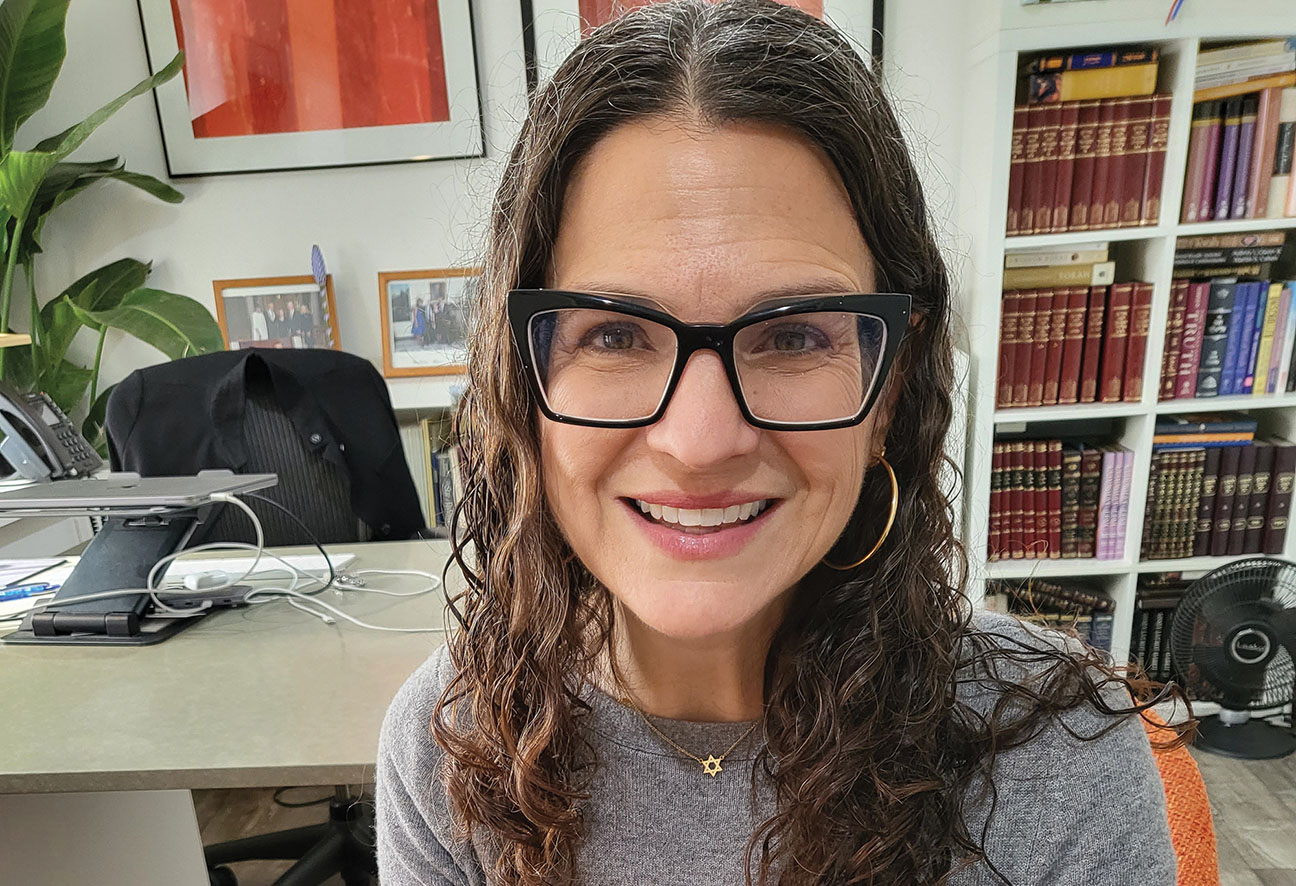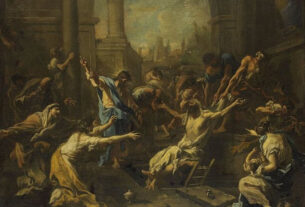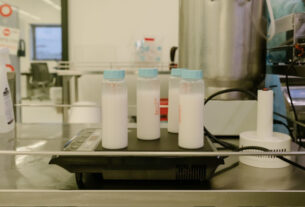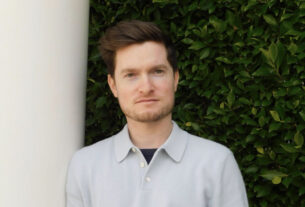For more than a dozen years, Rabbi Sharon Brous, the founder and leader of the unique synagogue Ikar (Hebrew for “the heart of the matter”) has been considered one of the most influential rabbis, and last year her first book, “The Amen Effect,” became a national best-seller. But as we reported last week in Part 1, when she was a student in New York City, she was frustrated in her search for a synagogue where she could feel “engaged.” Raised secularly, she became curious about Judaism as an undergrad at Columbia. Each Friday night for months, she and her boyfriend David Light — who later became her husband — would visit a different Upper West Side shul searching for one where she felt at home. Every visit ended in tears.
But after attending a service at B’nai Jeshurun, she cried “because my soul had been awakened in this space. I said to David afterward, ‘I need to go to Jerusalem and learn. I have to put together the pieces of my Jewish foundation that I missed growing up. And I have to understand what my grandparents rejected.’”
Her Reconstructionist grandparents had a “very rich” Jewish identity. But they were not religious. Rabbi Brous wanted to understand why. They had made choices that worked for them. “But by the time it got to my generation, I felt as if I didn’t understand the context. I didn’t have the basic literacy to know that this is what they knew, chose, rejected. ‘I wanted to know everything so I could make my own choices,” she said.
The pair left for Jerusalem. She enrolled at Hebrew University. “I dove into the learning,” she said. She was excited about academic inquiry, critical thinking, asking hard questions, deep research.. “I started to learn Gemara (Talmud) at the university. I fell in love with Talmud. This was a big part of my religious transformation. I was a deep learner. I wanted to be a civil rights attorney. When I started learning Talmud,” she said, “all of those synapses were ignited. I felt a deep spiritual connection, not just an intellectual one.” But there was one part of her learning that left her unsatisfied. “I had a real awareness my voice was not reflected on the pages in the Talmud,” she said, “that these rabbis I was falling in love with, I was starting to understand them as people, and their ideas, and to see them not just as individual quotes and arguments, but to see the humanity of these rabbis. “I also realized there was so much they weren’t sharing because they couldn’t share, couldn’t know, a woman’s experience.”
The deeper Rabbi Brous probed, the more she found she could not ignore.
“I saw how powerful and moving were the voices in the text,” she said. But she saw “this aching need to give voice to some of what was not reflected in the text. Those are the voices of women, queer people, disabled people, people out of the mainstream.”
The future rabbi stood at a crossroads. “I had a choice,” she said. “Either I could flee because this was a tradition written by men for men, handed down over the generations from one man to the next, or I could fight to make space for my voice and others that had been marginalized to be a part of this tradition. It was as much my inheritance as my brother’s. I felt I was going to stick around and fight.”
Her future husband witnessed the journey. “David says part of our falling-in-love story is I am having my Jewish journey and awakening,” Rabbi Brous said. “I don’t even know the words of Kiddush, the long version. We stayed up all night and he taught me the words.” For his part, David thought: “I lucked out because I found the one woman in the world who thought it was sexy I knew the words to the long version of Kiddush.”
For Brous, “the moment of recognition that I not only wanted to be a student of Torah but a rabbi happened that semester. I was in an Aish HaTorah discovery program in the Old City.
“I realized — it was an epiphany, a moment of a real crystallizing of things that had been swimming in my heart – the agents of social change that I most admired in the world, the people who had the deepest humanity, who were fighting to lift up the humanity of those who suffered most and were the most vulnerable, were people of faith. They were people driven by a faith narrative.”
“I realized the agents of social change that I most admired in the world, the people who had the deepest humanity, who were fighting to lift up the humanity of those who suffered most and were the most vulnerable, were people of faith. They were people driven by a faith narrative.”
She realized that the Exodus is the “core story we are obsessed with. It is at the heart of my sense of what is broken in the world: poverty, racism, extremism and violence — and also at the heart of what our work is and what needs to be done.”
The thought brought her to tears. “Four Haredi guys see me crying and come over. ‘What’s wrong?’ they asked. “I said, ‘I am going to become a rabbi.’ I saw blood drain from their faces. One guy said, ‘You should be a rebbetzin.’ I said, ‘I don’t want to marry a rabbi. I want to be a rabbi.’” That, she said, was the first step of her journey.
At her intellectual core, “every person is created with three innate dignities: the dignity of inestimable worth, every person is infinitely valuable, the dignity of equality, which is the fundamental incompatibility of racism and religion, and the dignity of uniqueness. There never will be another person exactly like you.”
That led her to the epiphany that formed the initial spark for Ikar. “What if we could create a new kind of communal gathering that would honor that human yearning and allow our ancient wisdom to speak in that context?”
Jewish Journal: Is there a single moment you most frequently recall?
Rabbi Brous: I remember everything about the moment in Jerusalem at the Aish weekend.
JJ: Any unmet goals?
RB: Of course. My dream is a world of love and justice.
JJ: What superpower would you like to have?
RB: I would like to be able to soften people’s hearts so we can see each other in the fullness of humanity.




